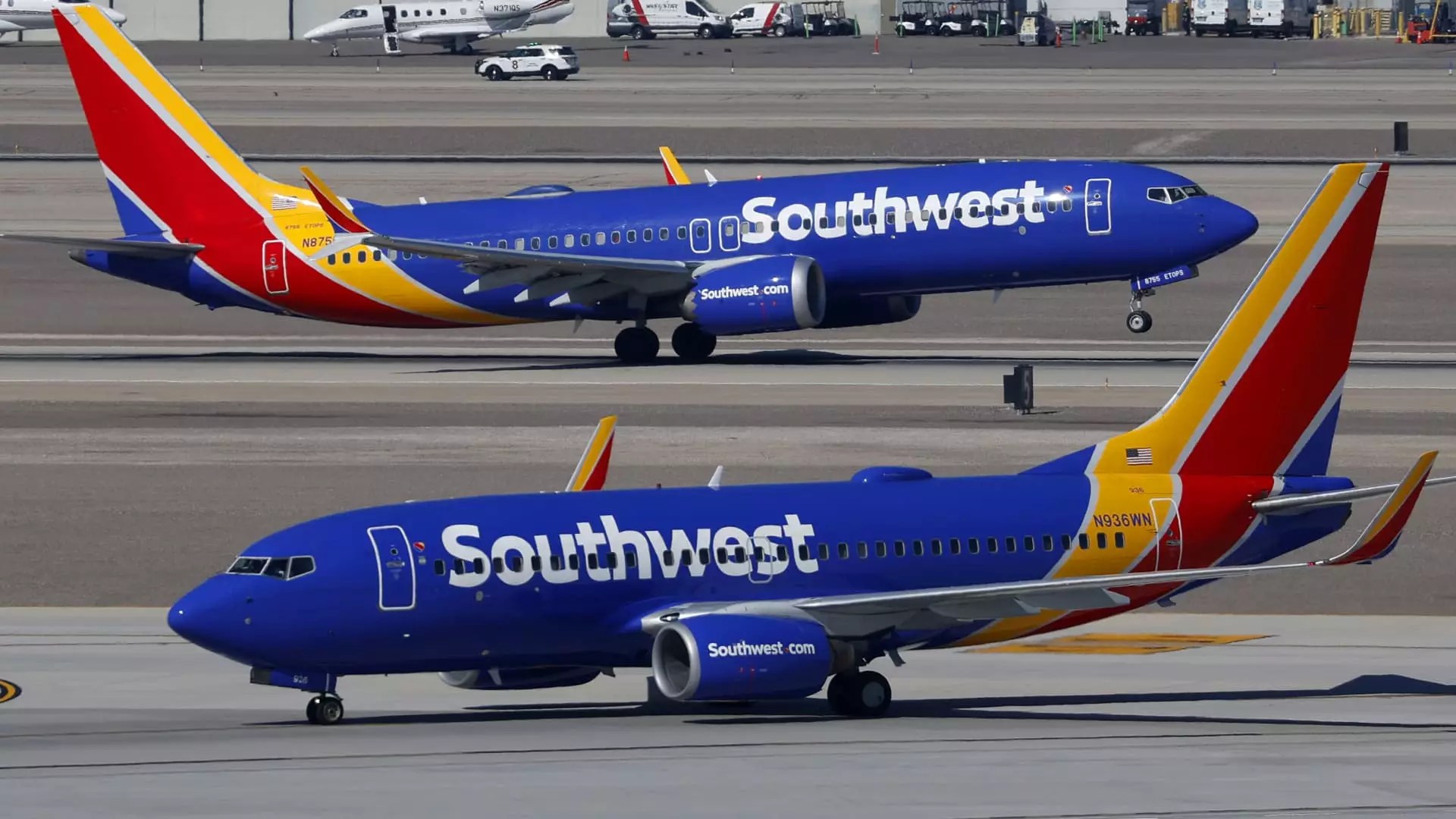For over five decades, Southwest Airlines has distinguished itself not only with its famously low fares but also with its unique open seating policy, which fostered a sense of casual camaraderie and spontaneity onboard. This approach—where passengers could board at their leisure and select any open seat—embodyed the airline’s commitment to simplicity and passenger empowerment. However, in a move that signals a fundamental shift in its business philosophy, Southwest has announced the imminent end of this beloved policy. Starting January 27, 2024, customers will be assigned seats, disrupting a corporate tradition that has carved out its identity amidst a sea of competitors. This change is more than a mere operational tweak; it represents a calculated pivot towards adopting practices that are increasingly standard in the airline industry, albeit at the expense of Southwest’s historically rebellious spirit.
The Driving Forces Behind Change: Adapting to a Competitive Market
Southwest’s decision is driven by pragmatic concerns, primarily to bolster revenue streams amid intensifying competition. While the airline’s open seating fostered loyalty and simplicity, it also introduced operational inefficiencies and unpredictable turnaround times. These issues, combined with the relentless pressure from more profitable carriers that leverage dynamic pricing and assigned seats, prompted Southwest leadership to reconsider. The company’s leadership has revealed ambitious financial targets—aiming to add hundreds of millions in earnings—by embracing new revenue sources like checked bag fees and seat selection charges. These measures align with the broader industry trend of unbundling services and creating diversified income streams to maintain profitability in an era of razor-thin margins and fluctuating fuel costs.
The Impact on Customer Experience and Loyalty
This overhaul, however, raises critical questions about loyalty and passenger experience. Southwest’s hallmark was its egalitarian boarding process, which Southerners viewed as a democratized way of flying—no assigned seats, no fuss, just a free-for-all where everyone had an equal shot at snagging the best seats. Removing that element risks alienating longtime fans who cherished the airline’s relaxed culture. Although Southwest is positioning the new system as a balancing act—trying to reward top-tier frequent flyers while offering options for standard passengers—the transition to seat assignments inevitably shifts power dynamics. Passengers who prefer spontaneity and flexibility may feel that their sense of control is diminished, especially if seat prices become variable and seat selection fees increase. This evolution could potentially transform Southwest from an airline with a rebellious spirit to another player caught in the standardization trap of the modern airline industry.
The Future of Boarding: Efficiency Versus Tradition
From a logistical perspective, Southwest’s move aims to streamline boarding, decrease congestion, and optimize turnaround times—crucial factors for improving profitability. The new eight-group boarding system, with prioritization based on loyal status and fare class, attempts to preserve an element of fairness. Yet, it fundamentally alters the chaos and spontaneity that once characterized Southwest flights. The airline’s gamble hinges on whether passengers will accept this transition and whether the promised efficiencies will offset the loss of the airline’s original charm. Implementation details, including seat assignment pricing and the layout of preferred versus standard seating, will determine if this shift alienates or retains the core customer base.
The Broader Implications: A Center-Right Perspective
From a center-right wing liberal perspective, this strategy underscores a broader societal trend—the redefinition of service and loyalty in pursuit of profit. While the market encourages innovation and adaptation, it also often dilutes the values that once made brands special. Southwest’s pragmatic approach to boosting earnings by adopting industry-standard practices may be necessary for survival, but it risks stripping away the personal touch that differentiated it from the crowd. In striving for efficiency and profitability, airlines are entrenching a culture where customer choices are increasingly driven by fees and tiered access rather than loyalty based on shared values of simplicity and fairness. If the industry continues down this path, it prompts us to question whether consumer satisfaction is truly prioritized over shareholder returns and whether airlines lose their identity in the process. Ultimately, Southwest’s bold departure from tradition reflects the difficult balancing act facing many service providers—succumbing to market forces or maintaining the uniqueness that once made them revered.


Leave a Reply